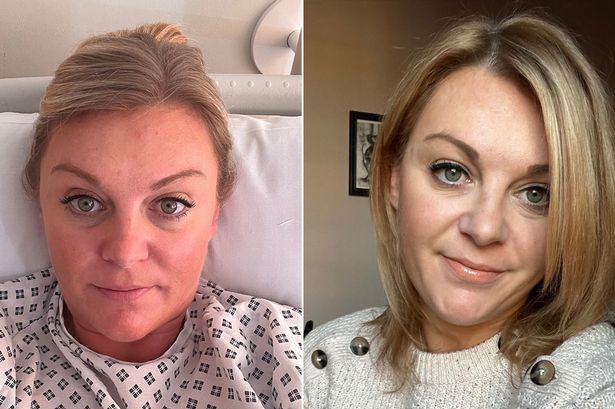Jemma Mondon, now 41, faced a challenging health journey that began in her late twenties when she started experiencing painful and heavy menstrual periods accompanied by severe stomach pains. Initially, she sought medical help, hoping to understand and alleviate her symptoms. However, after multiple consultations with various healthcare professionals, she was consistently diagnosed with irritable bowel syndrome (IBS). This diagnosis left Jemma feeling frustrated and unheard, as her debilitating symptoms continued without any effective treatment or explanation.
Despite the persistent discomfort and the toll it took on her quality of life, Jemma sought to manage the pain and heaviness on her own. She explored numerous home remedies and dietary adjustments, hoping to find some relief. However, these efforts yielded little success, and her situation did not improve over the years. The conflicting messages from healthcare providers, coupled with the lack of a definitive diagnosis, left her in a cycle of confusion and distress as she struggled to cope with her ongoing health issues.
As her symptoms worsened, Jemma’s daily activities were increasingly affected. The pain often interfered with her work, social life, and even personal relationships. She experienced feelings of isolation as friends and family struggled to understand the severity of her condition. The emotional toll of living with chronic pain compounded her physical suffering, leading to anxiety and depression. With each month bringing the return of unbearable symptoms, her mental well-being began to deteriorate, making it even more challenging to navigate her life.
In a bid to find answers, Jemma decided to seek out a specialist who could provide a deeper investigation into her symptoms. This decision marked a significant turning point in her journey, as she was finally able to undergo a series of tests and examinations. The results revealed a shocking diagnosis: she had endometriosis, a condition characterized by the growth of tissue similar to the lining of the uterus outside the uterus itself. This condition explained the painful and heavy periods, as well as the stomach pains that had been dismissed as IBS for so long. Learning about her actual diagnosis brought a mix of relief and renewed frustration, having endured years of misdiagnosis.
With the knowledge of her condition, Jemma began exploring treatment options tailored to endometriosis. This included hormonal therapies, pain management strategies, and discussions regarding potential surgical interventions. She found empowerment in understanding her body better and gaining the right support. Moreover, she connected with others who had similar experiences, helping her to feel less isolated. The journey was far from easy, but with the correct diagnosis, Jemma learned to navigate her condition with more confidence and control.
Today, Jemma is an advocate for raising awareness about endometriosis and the importance of recognizing women’s pain. She shares her story to educate others facing similar health challenges and to encourage them to seek second opinions when their concerns are dismissed. Through sharing her experiences, Jemma aims to highlight the significance of proper diagnosis and treatment in improving the quality of life for individuals struggling with chronic conditions. Her journey is a testament to resilience, advocacy, and the courage it takes to fight for one’s health.














